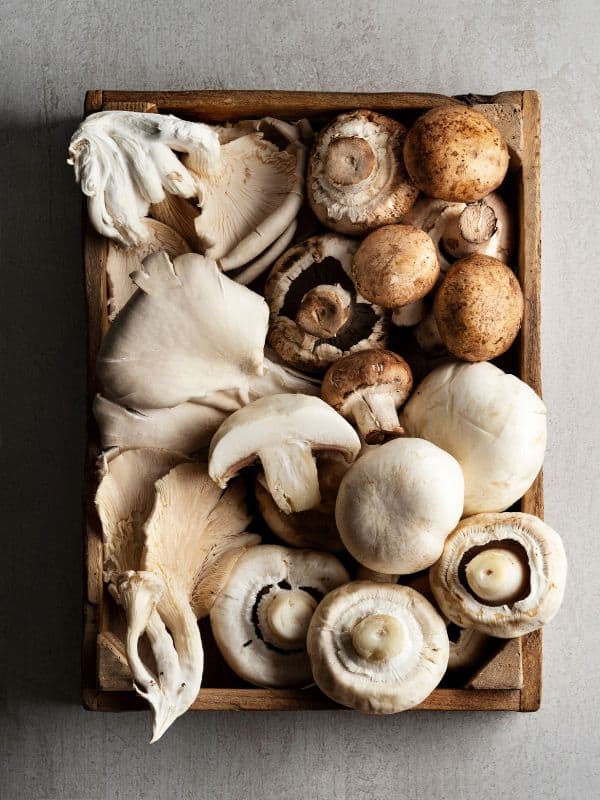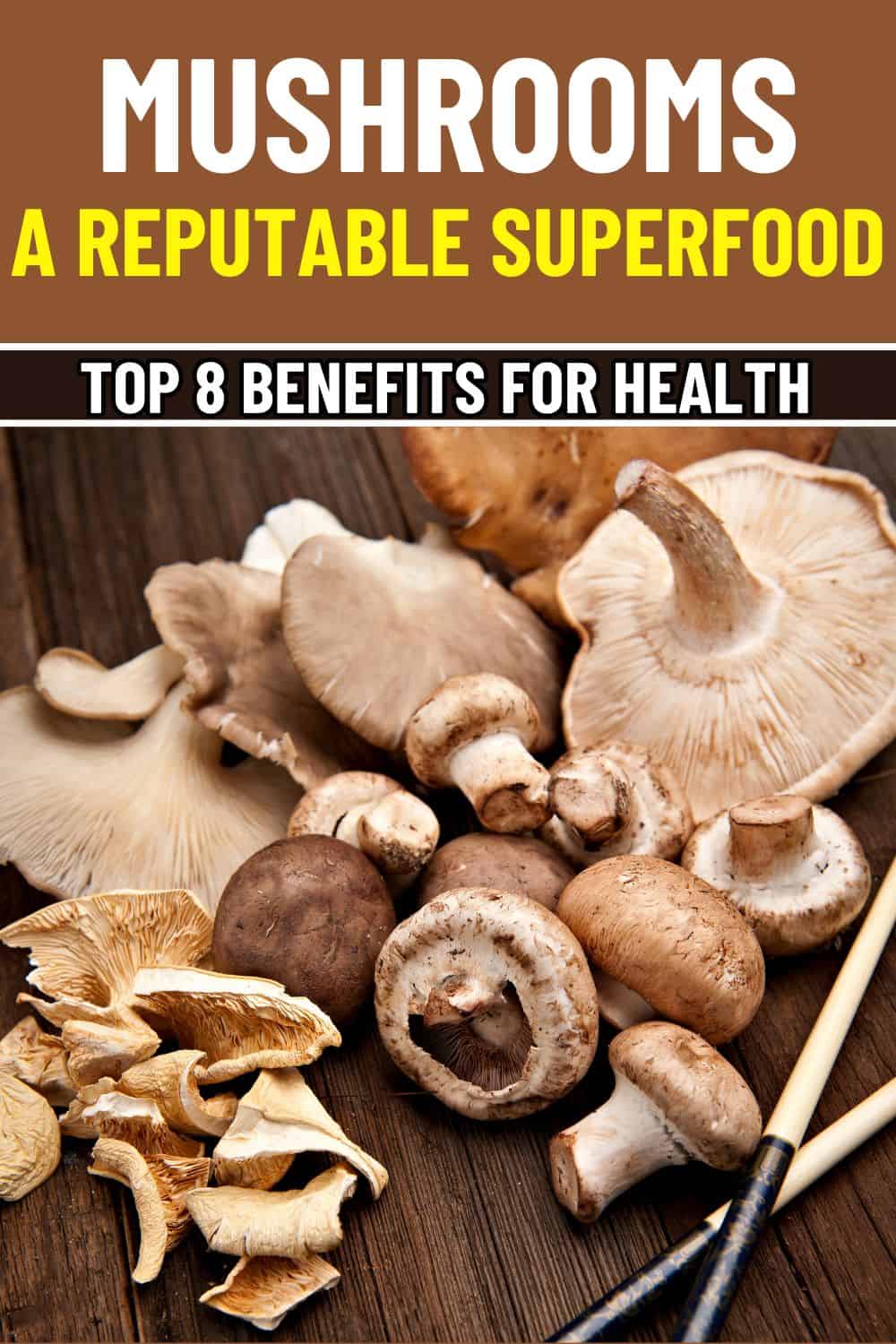Mushrooms are much more than a flavorful addition to your meals, they pack a serious health punch!
Rich in antioxidants, fiber, and key nutrients, they’ve earned their reputation as a superfood.
Whether you enjoy them sautéed, roasted, or as part of a hearty soup, mushrooms can offer a wide range of benefits for your body.
#1. Boosts Your Immune System
Mushrooms, particularly shiitake and maitake, are known for their immune-boosting properties. They contain beta-glucans that help activate your immune system to fight off infections.
For instance, 100 grams of shiitake mushrooms can provide around 2.5 grams of beta-glucans, which enhances your body’s defense mechanisms.
Research published in the Journal of the American College of Nutrition highlights that these compounds stimulate white blood cells, helping you stay healthy year-round.

#2. Promotes Heart Health
Mushrooms are naturally cholesterol-free and packed with potassium, a mineral that supports healthy blood pressure levels.
For instance, 100 grams of cooked mushrooms offer around 300 milligrams of potassium. This balance regulates the cardiovascular system, reducing high blood pressure and heart disease.
According to a study in Food Chemistry, you can consume mushrooms regularly to help reduce cholesterol levels and improve overall heart health.

#3. Packed with Antioxidants for Cellular Health
Mushrooms are rich in antioxidants like ergothioneine and glutathione, which protect your cells from oxidative stress and free radical damage.
In addition, these antioxidants are particularly beneficial in reducing inflammation and slowing down the aging process.
In fact, 100 grams of mushrooms contain up to 4 milligrams of ergothioneine, a powerful antioxidant that helps combat cellular damage.
A study published in Frontiers in Microbiology shows that ergothioneine is key in protecting cells from environmental stressors and reducing the risk of chronic diseases.

#4. Supports Healthy Weight Management
Mushrooms are low in calories (only about 22 calories per 100 grams) and high in fiber, making them fill without the added calories.
Therefore, they are an excellent food choice for those looking to manage their weight.
According to a study published in the International Journal of Obesity, to promote a sense of fullness and reduce overall calorie intake, you should add mushrooms to meals.

#5. Improves Digestive Health
Mushrooms are high in dietary fiber, which promotes healthy digestion and regular bowel movements.
In addition, they contain prebiotics that feed beneficial gut bacteria, improving your gut microbiome.
For example, 100 grams of mushrooms contain about 2.3 grams of fiber, which helps maintain digestive regularity.
Research from The Journal of Nutrition indicates that prebiotics in mushrooms can enhance gut health by promoting the growth of beneficial microbes, contributing to better digestion.

#6. Strengthens Bones with Vitamin D
Mushrooms are one of the few non-animal sources of vitamin D, which is crucial for your body to absorb calcium and maintain strong bones.
Sun-exposed mushrooms, such as maitake and shiitake, contain up to 1,000 IU of vitamin D per 100 grams, a significant boost for those who don’t get enough from sunlight.
Furthermore, a study in The Journal of Nutrition showed that mushrooms exposed to UV light can help prevent bone loss and maintain bone density.

#7. Excellent Source of Plant-Based Protein
Mushrooms are one of the few plant-based foods that offer a good source of protein.
While they’re not as high in protein as legumes or nuts, they can still provide a significant boost, especially when combined with other plant-based foods.
For example, portobello mushrooms contain about 3 grams of protein per 100 grams, a valuable option for vegetarians and vegans looking for alternative protein sources.

#8. Support Brain Health
Mushrooms contain compounds such as ergothioneine and glutathione, both powerful antioxidants that protect the brain from oxidative damage.
These antioxidants have been linked to reducing the risk of neurodegenerative diseases like Alzheimer’s and Parkinson’s.
Some studies suggest that regular consumption of mushrooms may help slow cognitive decline as you age.

How to Use Mushrooms
- Cooked in meals: Add sliced mushrooms to salads, stir-fries, or soups. They blend well with almost any savory dish.
- Roasted or grilled: For a simple, healthy side dish, toss mushrooms with olive oil, garlic, and herbs, then roast or grill them.
- In smoothies: Add mushroom powders like reishi or cordyceps to your smoothie or juice for a nutrient boost.
- Mushroom tea: Some medicinal mushrooms like reishi and chaga are available as tea, which can be calming and immune-boosting.

Cautions and Precautions
Some people may have mushroom allergies, so it’s important to start with a small amount if you’re trying them for the first time.
Never consume wild mushrooms unless you’re 100% certain they’re safe. Some species are highly toxic and can cause severe health issues.
If you are on medication, particularly blood thinners, consult your doctor before consuming medicinal mushrooms like reishi, which may interact with certain drugs.
Disclaimer
This article is intended for informational purposes only and should not be considered as medical advice.
Please consult with a healthcare provider before making any changes to your diet, especially if you have health conditions or are taking medication.







